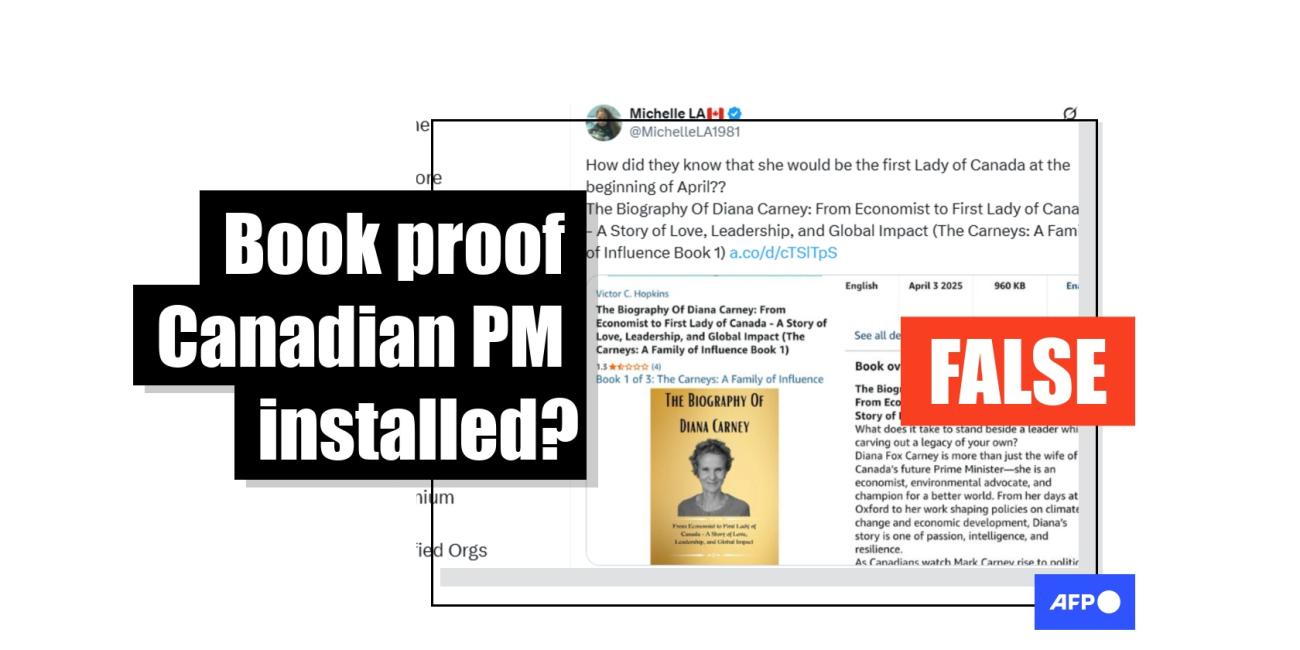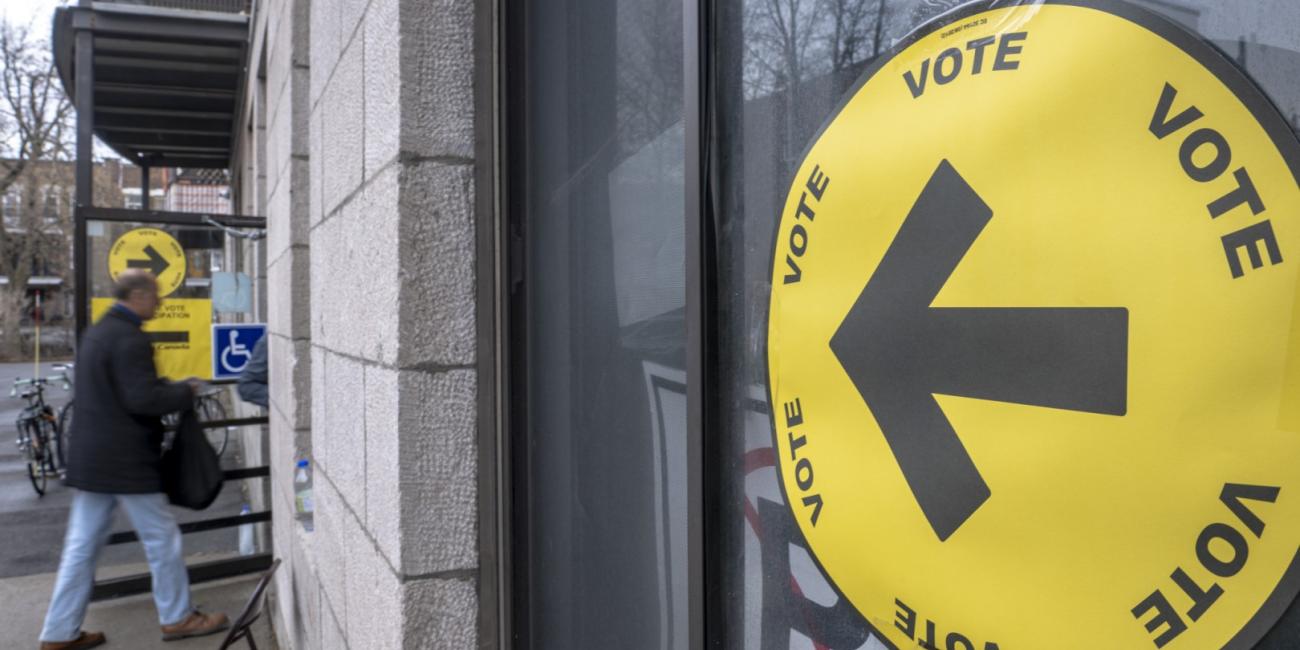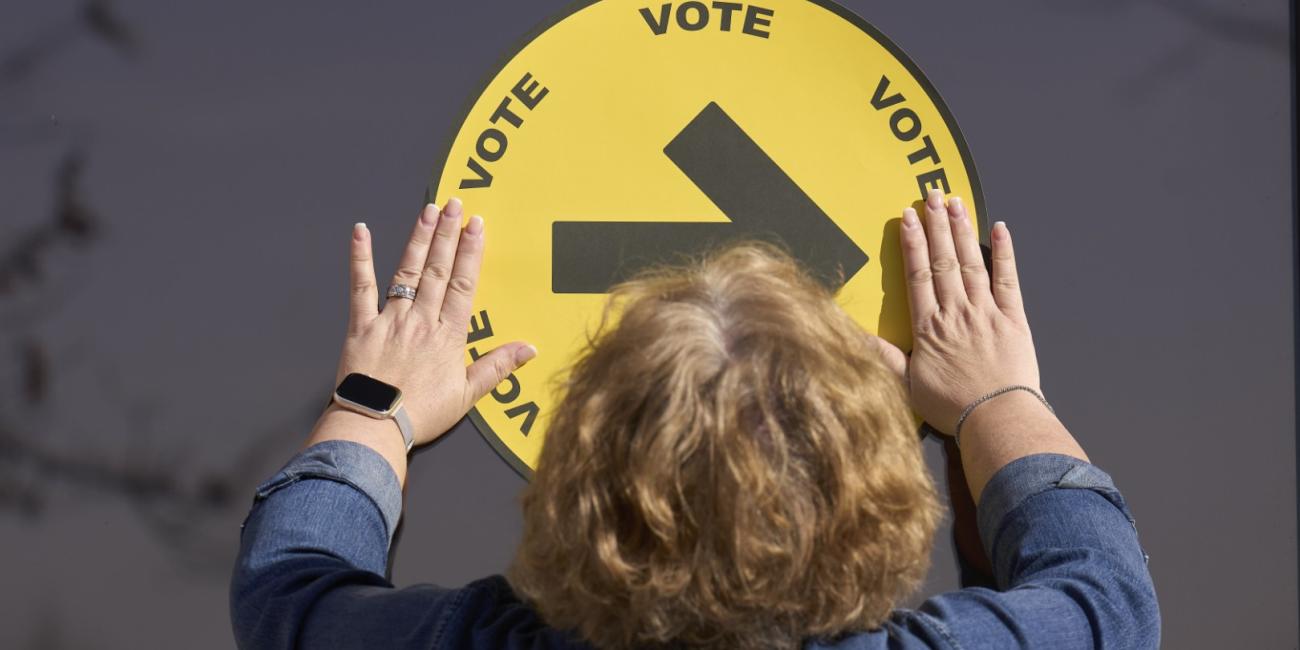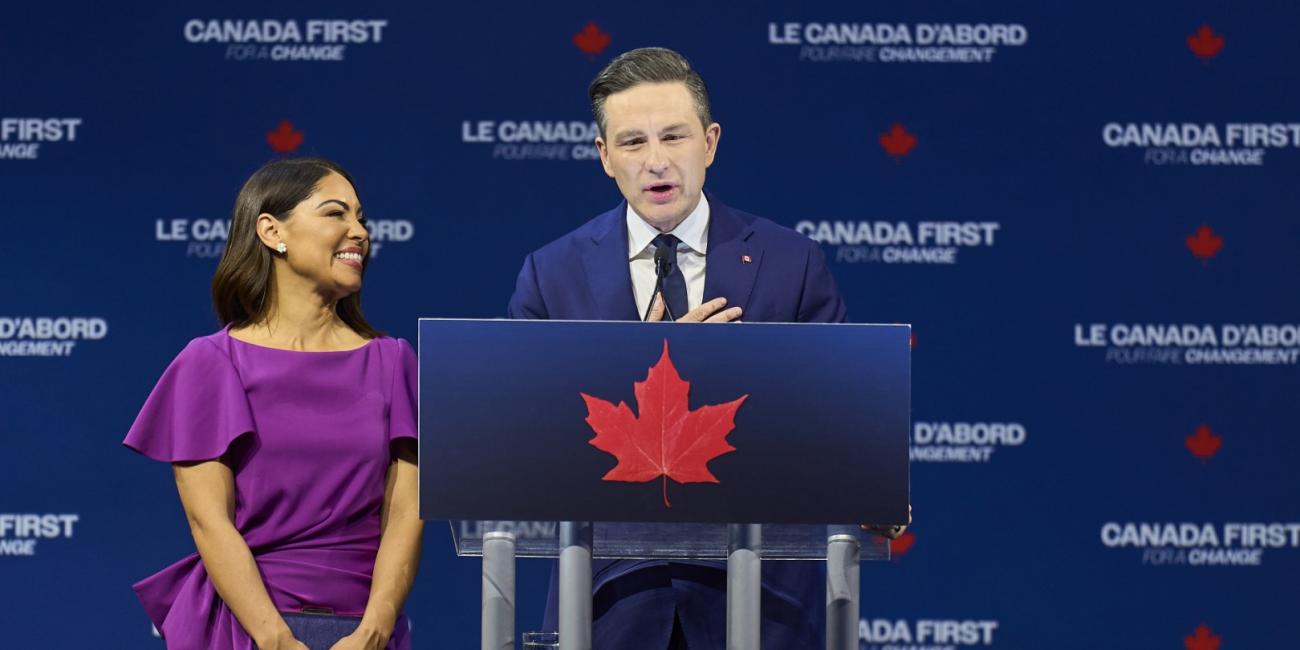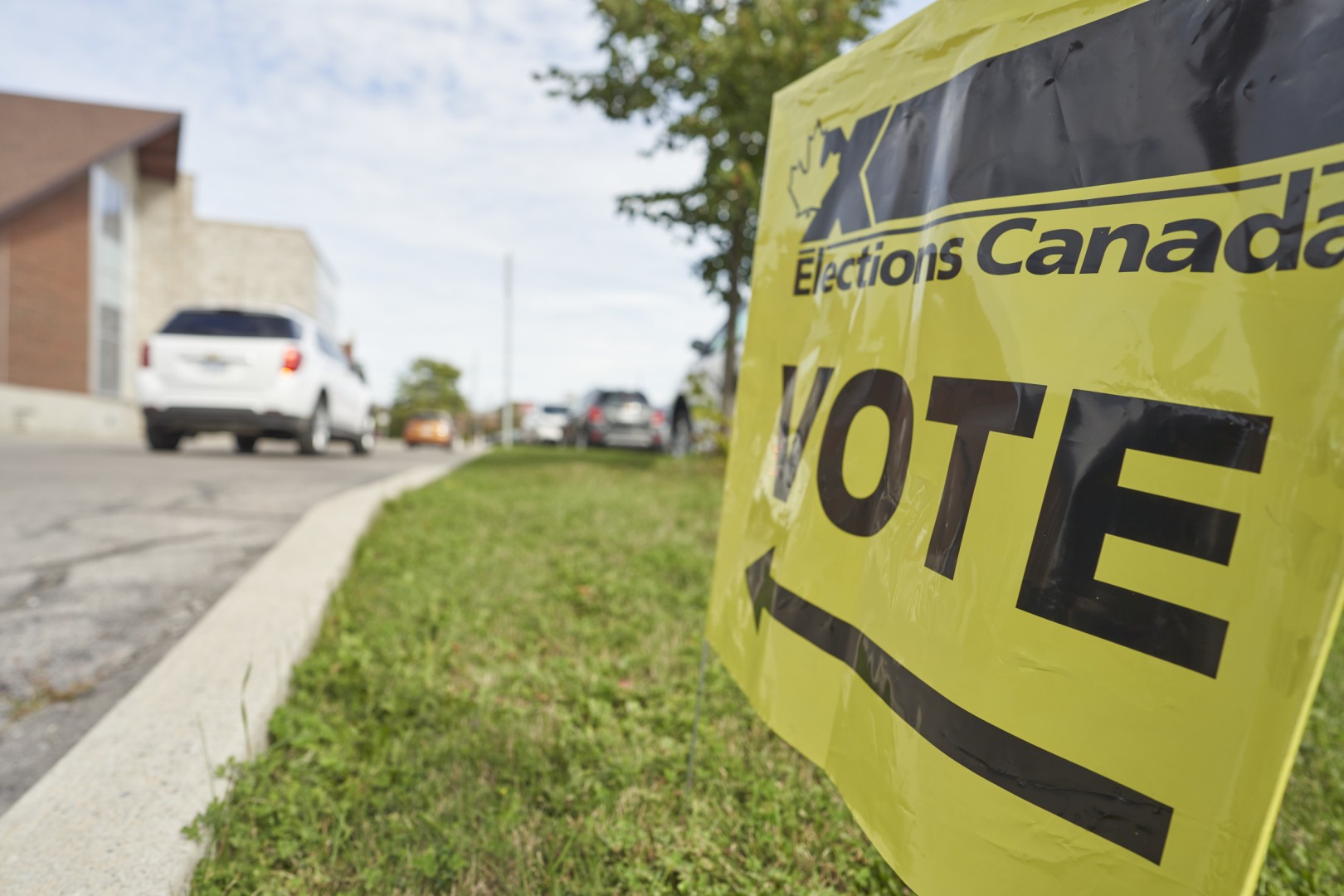
False claims spread on poll worker markings invalidating Canada ballots
- Published on April 18, 2025 at 21:34
- 3 min read
- By Daniel Patrick GALGANO, AFP Canada
"A very reliable good friend of mine just finished pollworker training and she texted me this.....Just finished Poll Manager training! I passed all the classes. I want you all to know something...if you are checking in at the polls and they happen to write anything on your ballot before they give it to you to put in the voting machine... a letter, a checkmark, a star, an R or a D any writing of any kind... please request a new ballot," says an April 11, 2025 Facebook post.
"Your ballot could be disqualified if it is written on. Please be on the lookout for this type of behavior."
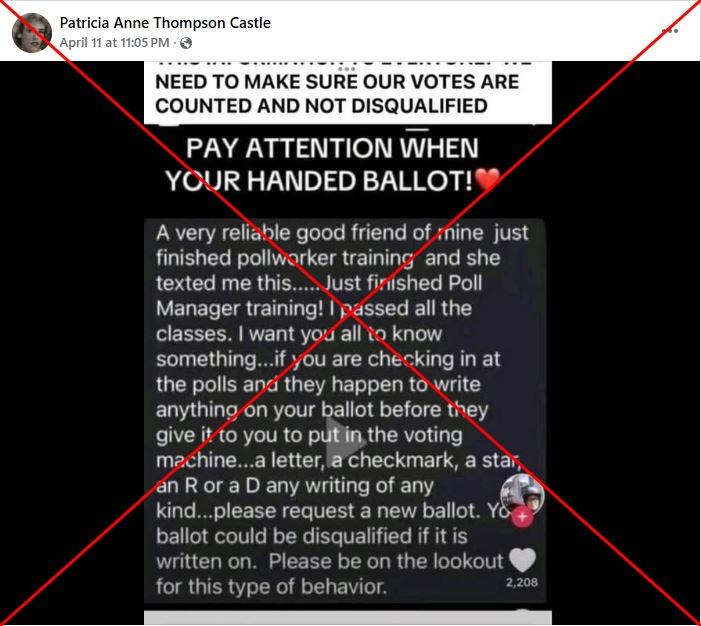
The same claim has circulated elsewhere on Facebook and Instagram.
AFP investigated misleading posts with the same text ahead of the November 2024 US election, determining that "R" and "D" likely referred to the American Republican and Democratic parties.
In Canada, Mark Carney called a snap general election for April 28, just days after being sworn in as prime minister. Advance polls opened on April 18 following debates between the leaders in English and French.
Some parts of Canada do use machines to count votes during provincial and local elections, but Elections Canada, which manages federal elections and referendums, does not deploy them (archived here).
Instead of feeding ballots into a tabulator, voters place paper ballots into a box, which is sealed until after polls close. The papers are then hand-counted by poll workers in the presence of witnesses, often representatives of the candidates (archived here).
A spokesperson for Elections Canada said the agency trains election workers to write their initials and the number of their assigned polling station on the back of each ballot before it is issued to an elector.
After they mark their vote, the poll worker checks to ensure that his or her initials and number are still visible on the back of the paper before handing it back to the voter to place in the ballot box.
"This is the only instance where the election worker writes on the ballot, and it is on the back. This is a safeguard to ensure that the same ballot that was provided to the elector is the one that is being put into the ballot box," the spokesperson said in an April 16 email.
Elections Canada's guidebooks similarly instruct poll workers to mark the back of ballots and then verify that the mark is still visible before it is cast and counted (archived here and here).
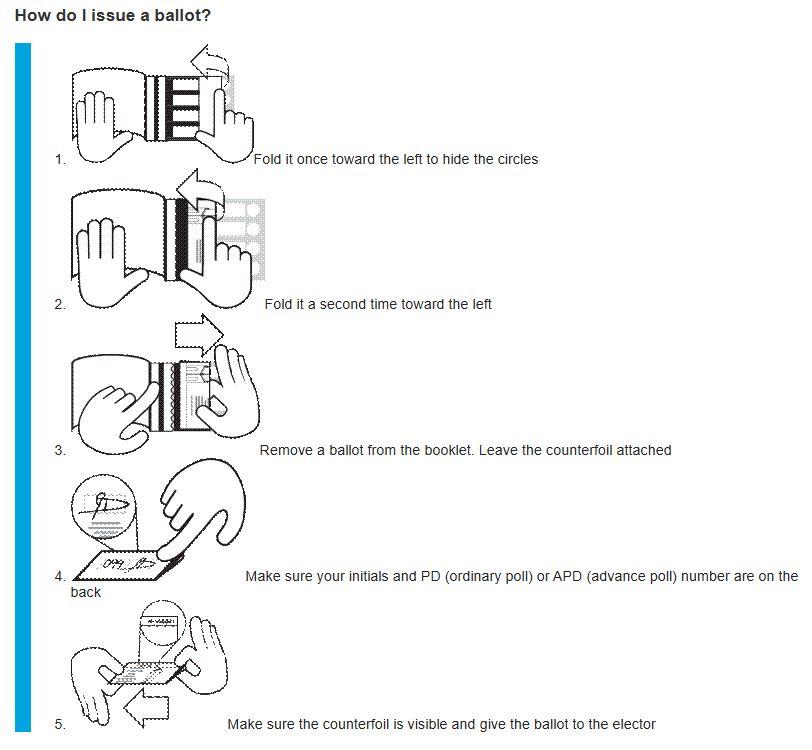
The Canada Elections Act only allows officials to reject ballot if the correct polling station workers did not provide it, has no marks on it, has the name of someone who is not a candidate, indicates a vote for more than one candidate or has writing on it that could reveal the identity of the voter (archived here).
The guidance for ballot rejection states that a ballot with no initials or marks from an election worker on the back can be evidence that the ballot paper was not distributed correctly or issued by election officials (archived and available here).
Holly Ann Garnett, the co-director of the nonprofit Election Integrity Project (archived here), said poll workers marking ballots "is not an issue to be concerned about" and that the process of initialling ballots is in place to show officials that an approved poll worker properly issued the ballot paper to the elector.
"It's all happening in front of you. You get your ballot from the poll workers, you go back and fill it out," she said on April 16.
The Canadian Digital Media Research Network and the Media Ecosystem Observatory at McGill University reported on April 18 that despite high levels of trust among Canadians in Elections Canada and the integrity of the 2025 election, "claims of fraud, manipulation and election rigging continue to increase" (archived here).
However, instances of voter fraud and ballot tampering are rare in Canada, with election officials referring any irregularities to the Commissioner of Canada Elections. Those who violate federal election laws may face fines and even jail time (archived here).
AFP reviewed the agency's list of criminal cases related to federal election law, dating back to the 2019 election, and found no instances where a poll worker was caught inappropriately marking or drawing on a ballot paper (archived here).
AFP has debunked other claims about the 2025 Canadian election here.
Copyright © AFP 2017-2026. Any commercial use of this content requires a subscription. Click here to find out more.
Is there content that you would like AFP to fact-check? Get in touch.
Contact us
